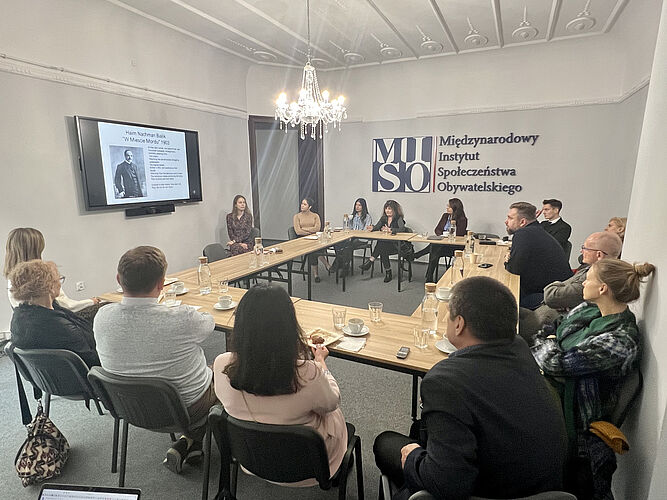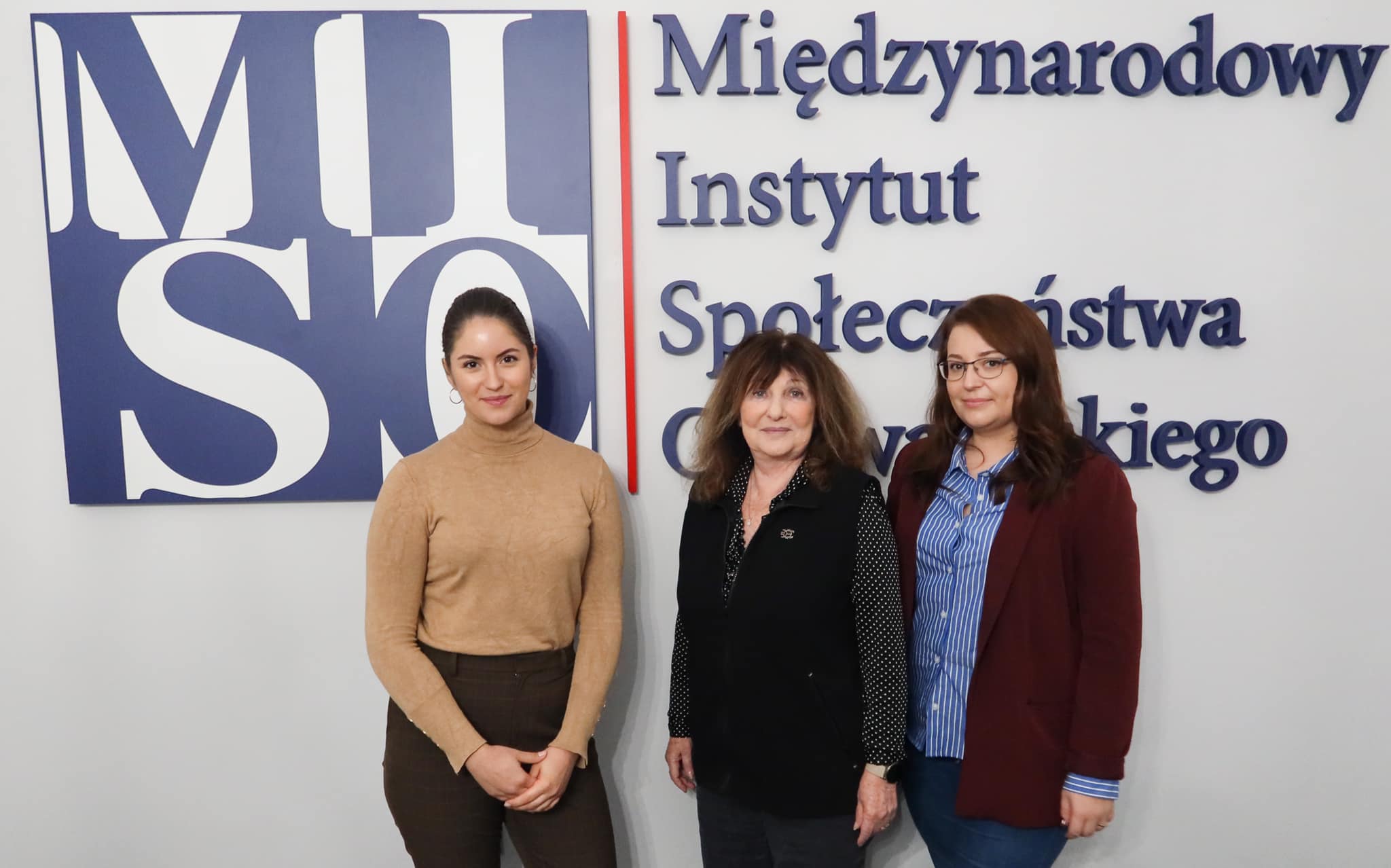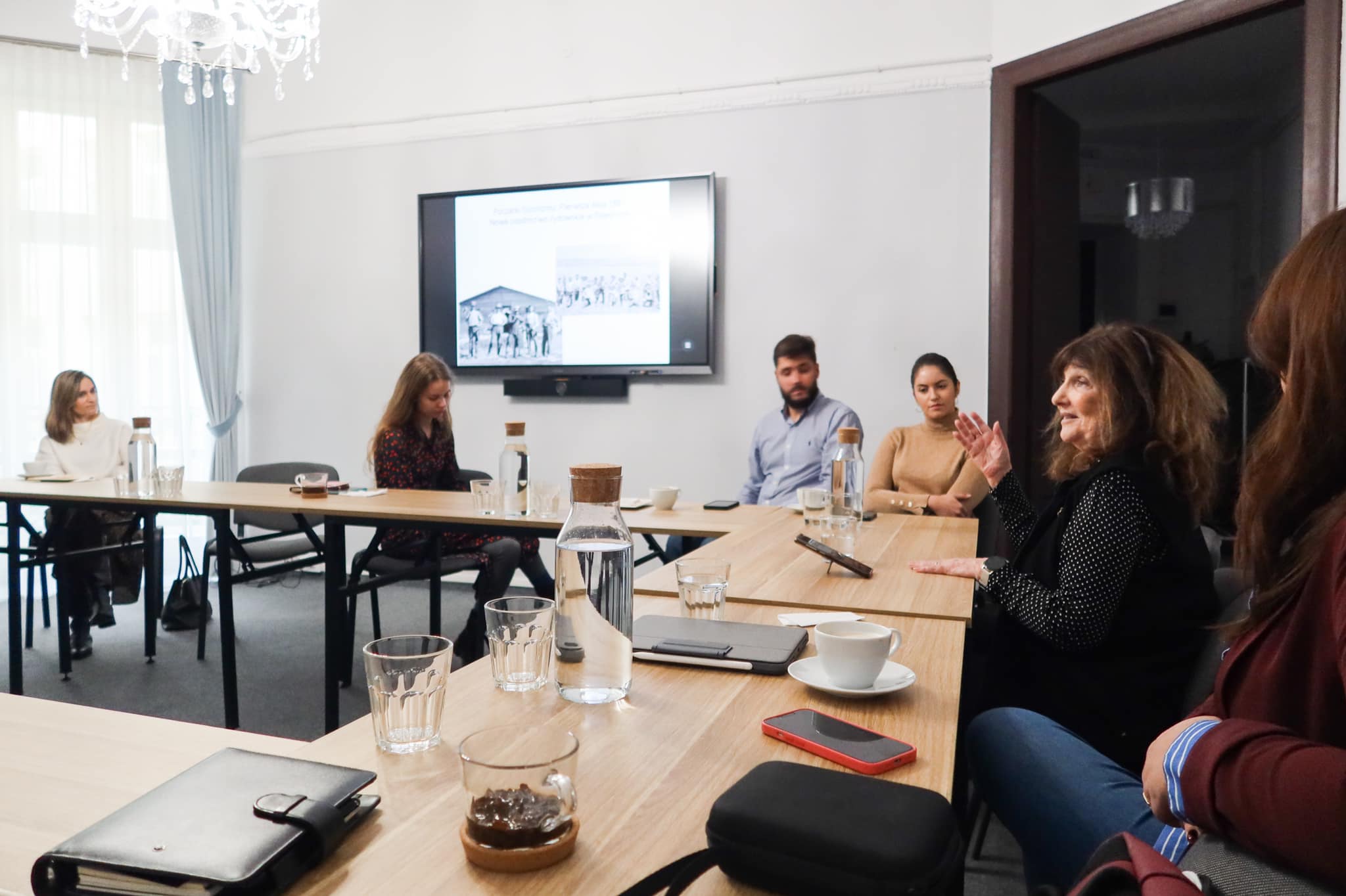ISRAELI BREAKFAST WITH THE PARTICIPATION OF NILA AMIT
The meeting focused on, among other things, women in Israel and how their role and influence on society and politics have changed - from Zionist pioneers to the present day. The meeting was attended by members of the MISO community, representatives of NGOs and business, as well as academics.
The speaker introduced the invited guests to the issue of evolution of the role of women in Israel using examples from history and literature. In contemporary Israel, with a population of 10 million, the role of women is extremely diverse - first of all, it should be pointed out that it is radically different in each Jewish faction. However, the mainstream of a secular state is evident, i.e., for example, women have the right to vote, are highly educated and can serve in the army. However, Nila Amit stressed that Israel is still a country that promotes the lifestyle of the “macho man” and the “woman sacrificing for her family and home.”
An important point in the discussion was the recent parliamentary election in Israel, which was won by Benjamin Netanyahu's block supported by extreme nationalist parties and representing the interests of the ultra-Orthodox Jewish community. Israeli society is still very traditional, and there is no separation of state and church in Israel, so when a religious party comes to power it is able to control every sphere of citizens' lives. Interestingly, the number of secular Israelis in society is increasing every year, but this phenomenon is not reflected in politics. The situation of women in Israel is bound to change, but these changes will happen very slowly - especially in the situation of the dominance of right-wing political groups.
Nila Amit is a graduate of the Hebrew University in Jerusalem. She did her military service in a kibbutz on the Dead Sea coast. She worked at Tel Aviv University. She teaches classes on Israeli culture at the History Department of Warsaw University and Collegium Civitas, among others. At the POLIN Museum she is in charge of̨ cooperation with institutions from Israel. She organizes conferences, educational projects for Polish and Israeli youth and training for Israeli guides. She is the author of a biographical book ”I Should Have Been a Princess,” part of which is devoted to the experience of living in a kibbutz.
“Israeli Breakfasts” is a series of meetings about Israel that showcase the country through the lens of personal stories and experiences.The project aims to create a platform for dialogue on topics such as Israeli society, the role of women and the world of new technologies. The key to the Breakfasts is the search for an answer to the question: what unites - instead of dividing - Poles and Israelis? Meetings begin with a joint breakfast, during which invited guests have an opportunity to taste authentic Israeli cuisine.
ELNET (European Leadership Network) is an international non-profit organization with one goal - to exchange experiences and deepen cooperation between Europe and Israel based on common needs and democratic values.







